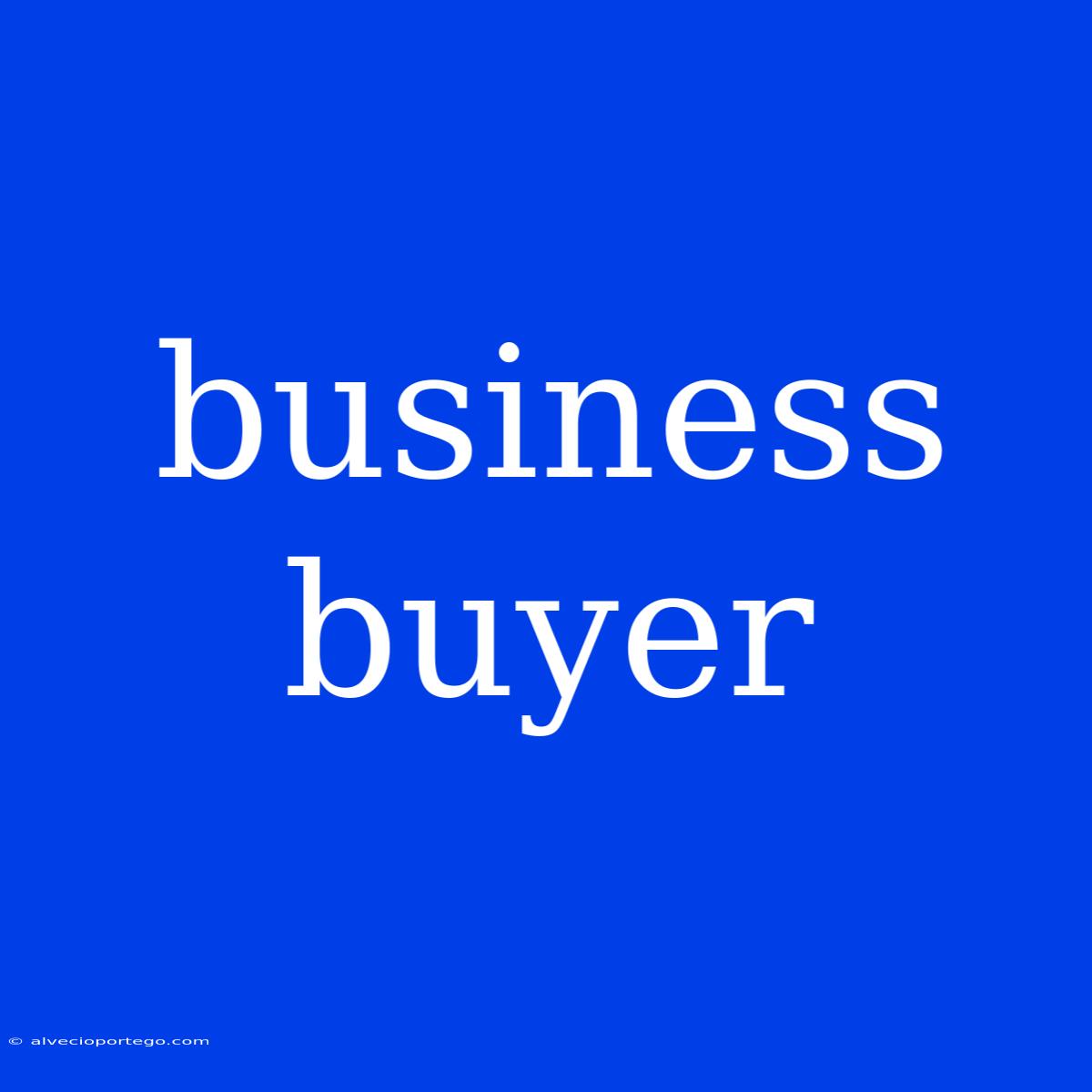The Business Buyer: Understanding the Decision-Making Process
A business buyer, also known as a B2B buyer, is an individual or group within an organization responsible for making purchasing decisions related to goods and services. Unlike consumers who make personal purchases, business buyers operate within a more complex environment with multiple stakeholders, internal processes, and strict budget constraints.
Understanding the intricacies of the business buyer's decision-making process is crucial for businesses hoping to succeed in the B2B market. This article will delve into the key aspects of this process, providing insights into the motivations, challenges, and factors influencing their choices.
Stages of the Business Buying Process
The business buying process typically follows a structured path, with several distinct stages:
1. Need Recognition: The process starts with the identification of a need or problem within the organization. This could be anything from a broken piece of equipment to a desire for improved efficiency.
2. Information Gathering: Once a need is identified, the business buyer gathers information about potential solutions. This involves research, consulting with internal experts, and seeking out vendor information.
3. Evaluation of Alternatives: The business buyer then evaluates various options based on criteria such as price, quality, features, and vendor reputation. They may also conduct competitive analysis, vendor comparisons, and feasibility studies.
4. Selection of Vendor and Solution: After thorough evaluation, the business buyer chooses the best vendor and solution that meets the organization's needs. This involves negotiation and contract development.
5. Purchase Decision: The final purchase decision is made, with the chosen vendor and solution being implemented.
6. Post-Purchase Evaluation: After the purchase, the business buyer evaluates the vendor's performance, the solution's effectiveness, and the overall experience. This feedback is crucial for future purchasing decisions and vendor relationships.
Factors Influencing Business Buyer Decisions
Numerous factors influence business buyers' decisions, including:
1. Organizational Factors:
- Company size, industry, and culture: Different organizations have varying needs and priorities, which impact purchasing decisions.
- Organizational structure and decision-making processes: The buyer's authority level and internal approval procedures play a crucial role.
2. Individual Factors:
- Buyer's personal needs, priorities, and buying style: Different individuals have unique preferences and decision-making styles.
- Expertise and experience: The buyer's knowledge and experience in the field influence their evaluation and selection criteria.
3. External Factors:
- Economic conditions: Market trends, competition, and economic stability can impact purchasing decisions.
- Technological advancements: New technologies and innovation can create new needs and opportunities for businesses.
- Government regulations: Legal and regulatory frameworks can influence product choices and purchasing procedures.
Challenges Facing Business Buyers
Business buyers face various challenges in their decision-making process, such as:
- Limited budget: Budget constraints often restrict the range of available options.
- Time pressures: Businesses need to make decisions quickly, leaving limited time for thorough research and evaluation.
- Complex purchasing processes: Internal procedures and stakeholder approvals can make the purchasing journey long and complex.
- Information overload: Navigating a vast amount of information about products, vendors, and industry trends can be overwhelming.
Strategies for Businesses Targeting Business Buyers
To effectively reach and engage business buyers, businesses need to understand their decision-making process and adapt their marketing and sales strategies accordingly. Some key strategies include:
- Content marketing: Provide valuable and informative content related to industry challenges, solutions, and best practices.
- Relationship building: Develop strong relationships with key decision-makers by fostering trust and transparency.
- Personalized communication: Tailor messages and content to address specific business needs and pain points.
- Demonstrate value: Clearly communicate the value proposition and ROI of your products or services.
- Build credibility and expertise: Establish a reputation as a trusted source of information and expertise in the field.
By understanding the motivations, challenges, and decision-making process of business buyers, businesses can tailor their strategies to effectively reach, engage, and convert this valuable target market.

